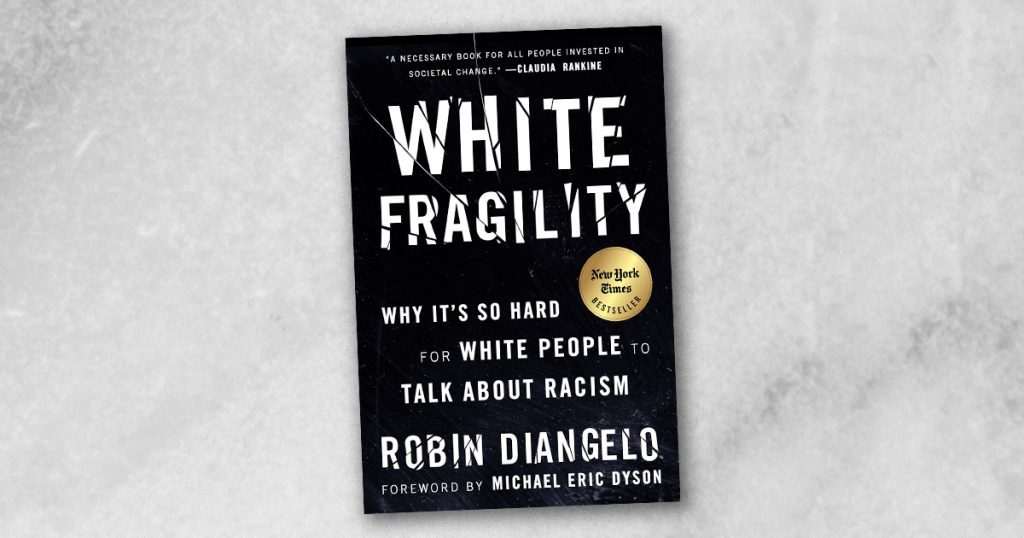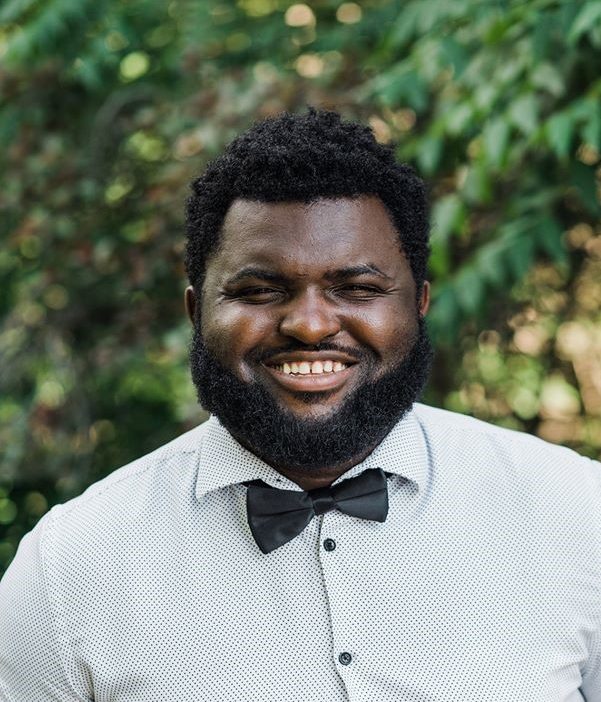When I was a boy in Ghana, I once had a massive nail pierce through my foot, and I suffered through a makeshift surgery by my mom without anaesthesia.
And that was significantly more enjoyable than reading this book. It’s astonishingly bad.
White Fragility: Why It’s So Hard for White People to Talk About Racism is one of the bestselling books right now, and it’s one of the worst books I’ve ever read.
White Fragility was released in 2018 by sociologist and anti-racist Robin DiAngelo. The book became a best-seller immediately after it was released. However, since George Floyd’s murder a couple of months ago, it’s become the most recommended anti-racist book in the world.
In White Fragility, Robin DiAngelo attempts to explain why white people, especially “progressive” white people, do not believe they’re racists. In the book, she defines white fragility as any rejections—including sincere rejections—by white people against accusations of racism.
She says: “None of the people whose actions I describe in this book would identify as racist. In fact, they would most likely identify as racially progressive and vehemently deny any complicity with racism. Yet all their responses illustrate white fragility and how it holds racism in place.”
For that reason, she says: “white progressives cause the most daily damage to people of color.”
That’s probably the only thing from the book I agree with. She’s right—except she doesn’t know she’s referring to herself. White “progressives” cause the most daily damage to black people, and this book is a good example of that.
I read White Fragility over four days, and it damaged me in each of the four days. The book is more damaging than any massive nail to my foot.
Robin DiAngelo has managed to accomplish the difficult task of writing a book that is simultaneously anti-white and white supremacist. And yet, it’s the bestselling book on racism today.
What does it say about our culture when one of the most racist books I’ve ever read is considered by many to be the best book on racism?
We’re apparently so distracted and so deceived by false definitions of racism, we’re seemingly no longer able to discern what real racism looks like. And that’s one of the major problems with White Fragility and anti-racism ideology, it redefines racism and sin to predictably destructive and disastrous conclusions.
Anti-racism is synonymous with critical race theory, or more broadly, social justice ideology. Anti-racism is a commitment to eliminating practices and policies, sins and systems that anti-racists declare as racist.
In anti-racism ideology, racism isn’t an enticing sin, it’s an entity—or as DiAngelo references in the book—“an omnipresent phenomenon.”
And by that definition of racism, it’s not difficult to notice the religious overtones of anti-racism. Anti-racism is just pro-racism appearing as an angel of light. Anti-racism is an anti-Christ ideology that uses racism as a means to fight supposed racism. It’s an ideology that labels good as evil and evil as good. And it’s in direct opposition to Christianity.
Anti-racism is synonymous with critical race theory, or more broadly, social justice ideology.
In White Fragility, Robin DiAngelo says: “a positive white identity is an impossible goal. White identity is inherently racist; white people do not exist outside the system of white supremacy.”
Professing to be wise, Robin DiAngelo became a fool. Professing to be anti-racist, she became a racist. White Fragility is a racist and an anti-white book. And if we really lived in an anti-black culture like DiAngelo claims, her anti-white book wouldn’t be a bestseller.
But anti-racists like Robin DiAngelo do not hate racism, they only hate, supposedly, anti-black racism. And yet, like many “progressives”, her anti-white racism manifests in a condescending form of white supremacy. Anti-racist rhetoric is remarkably similar to white supremacist rhetoric.
Anti-racists and white supremacists agree that a person’s skin colour is the most significant thing about them. They agree that a person’s skin colour shapes who they are. And anti-racists agree with white supremacists that white people are more privileged than black people—except they say so with pity, not pride.
Robin DiAngelo writes like a white supremacist, and according to her concept of white fragility, it would be racist for her to reject my accusation—according to her own silly standards, she would have to agree with me that she’s indeed a white supremacist.
The similarities between anti-racists and the alt-right are striking. In fact, so many times throughout the book, her words read like she was plagiarizing Richard Spencer.
For instance, she said: “I am free to move in virtually any space as normal, neutral, or valuable. While I might worry about my class status in some settings, for example, when attending a ‘high society’ event such as a museum opening or an art auction, I will not have to worry about my race. In fact, my race will work in my favour in these settings, granting me the initial benefit of the doubt that I belong there. I also will certainly not be the only white person there.”
She doesn’t realize she’s projecting her own white supremacists views on society. It takes a profoundly ignorant and arrogant person to write those words. Unhelpful generalizations against white people inevitably leads to unhelpful generalizations against black people.
Racism from anti-racists can be more destructive than racism from traditional racists today, since they’re convinced their racist ideology and actions are actually in protest against racism. They’re like rioters who destroy property owned by black people in Minnesota because of their supposed love for George Floyd and black people.
But the most disturbing thing about White Fragility isn’t what it says about white people or black people. The most disturbing thing about White Fragility is what it says about sin and repentance, human nature and God’s character.
Naturally, White Fragility doesn’t mention God. However, the gods of anti-racism are mentioned throughout the book. In anti-racism, black people and white anti-racists like Robin DiAngelo are precious deities whom we must devote ourselves to, if we don’t want to be racists—or in my case, if I don’t want to internalize racism.
According to them, black people and anti-racists are the inerrant and authoritative voices on racism, not the Bible. Therefore, they redefine racism in a manner that suits their agenda.
In anti-racism, the gospel is irrelevant and racist. Essentially, anything that isn’t in conformity to anti-racism is racist—including the gospel of Jesus Christ.
Like all anti-racists, Robin DiAngelo rejects the biblical definition of racism. That’s because the biblical definition of racism is inconvenient for her racist ideology and her ridiculous concept of white fragility.
Marxists used to burn Bibles. Marxist anti-racists like Robin DiAngelo, however, burn biblical definitions. And in doing so, she commits a theological heresy and a logical malpractice.
In the book, DiAngelo says: “[white fragility] is rooted in the false but widespread belief that racial discrimination can only be intentional…the simplistic idea that racism is limited to individual intentional acts committed by unkind people is at the root of virtually all white defensiveness on this topic.”
That is a complete rejection of the biblical and logical definition for racism. Racism is biblically defined as a form of partiality or hatred against another person because of their skin colour. The Bible says: “show no partiality as you hold the faith in our Lord Jesus Christ, the Lord of glory…have you not then made distinctions among yourselves and become judges with evil thoughts? (James 2:1

Racism is always an intentional and unkind thought or deed. That isn’t a simplistic definition of racism by white people. That isn’t even a simplistic definition of racism by me. That’s a simple, scriptural definition of racism by God.
Nevertheless, citing another anti-racist, DiAngelo says: “Racism is a systemic, societal, institutional, omnipresent, and epistemologically embedded phenomenon that pervades every vestige of our reality. For most whites, however, racism is like murder: the concept exists, but someone has to commit it in order for it to happen. This limited view of such a multilayered syndrome cultivates the sinister nature of racism and, in fact, perpetuates racist phenomena rather than eradicates them.”
In other words, according to anti-racists, the biblical and logical definition of racism as an intentional act is actually racist. And yet, they don’t seem to notice their inconsistent thinking. If racism isn’t an intentional act, then why is my intentional definition of racism racist? If racism is morally ambiguous as Robin DiAngelo claims throughout the book, then how can it be sinister? If racism is sinister, then aren’t the perpetrators of racism sinners?
And if racism can be unintentional, then how can a person intentionally fight against racism? What’s the purpose of anti-racism then?
Anti-racism isn’t interested in changing sinners, it’s interested in changing systems. This is why they label Biblical Christians as racist. This is why anti-racists hate it when we Christians say: “just preach the gospel.”
In anti-racism, the gospel is irrelevant and racist. Essentially, anything that isn’t in conformity to anti-racism is racist—including the gospel of Jesus Christ.
Therefore, anti-racists like Robin DiAngelo aren’t interested in repentance from sinners, they’re only interested in revolutions against systems. Anti-racists believe racism resides in a white person’s skin colour, not in all our hearts.
White Fragility offers sinister rebukes without any sincere offers for repentance. The book doesn’t offer any real hope for both victims and perpetrators of racism. And yet, the book and anti-racist ideology is infiltrating Christian circles.
But Christian, don’t burden yourself with what White Fragility and anti-racist ideology demand from you. Instead, rest in what your Saviour has done for you.
Social justice is an unending burden and pain no one can bear. Jesus’ yoke is easy, and his burden is light. The gospel is enough. Jesus is enough.
However, if you embrace White Fragility and anti-racism, you’re in danger of losing your mind and your soul.
This book review originally appeared at Slow To Write and is republished here with the author’s permission.
Follow Samuel Sey:
-
- Twitter | @SlowToWrite
- Facebook | @SlowToWrite
- Instagram | @SlowToWrite
- Website | www.slowtowrite.com























